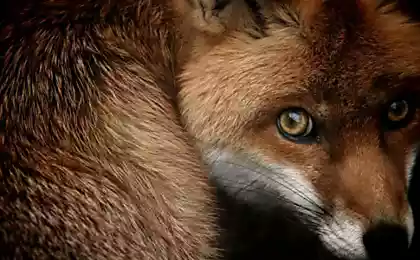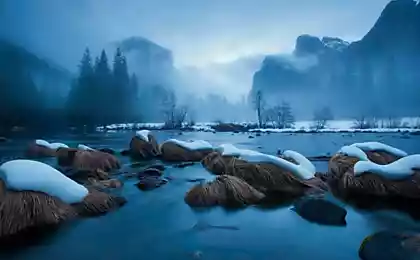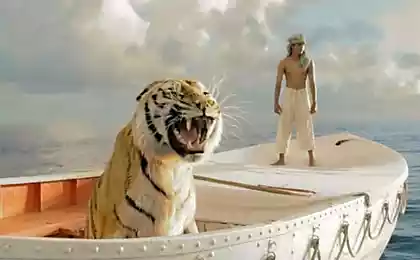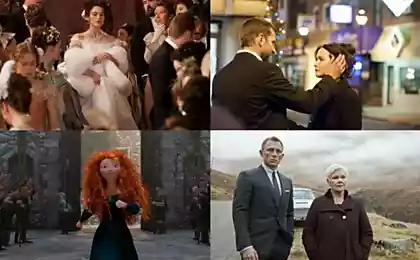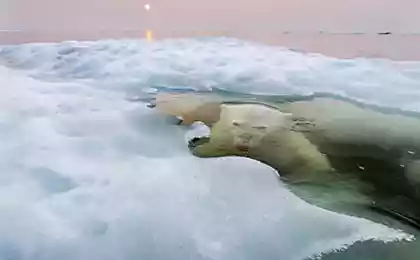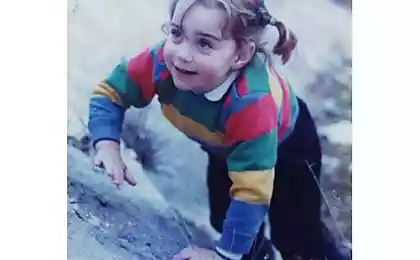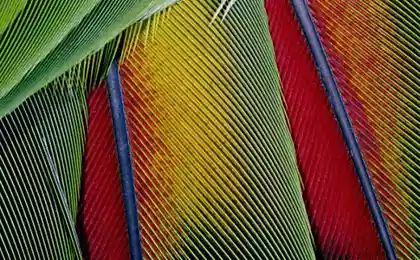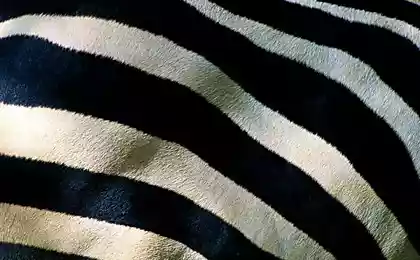1578
Best photos from National Geographic in June
Selection of the best and most colorful photos in June 2013 by National Geographic.
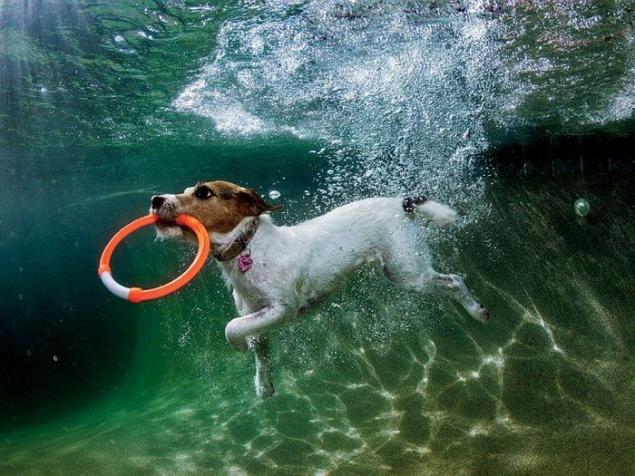
Virginia deer, Arkansas
One of the most common types of cervids in North America. Interestingly, in the 1920s, the population of deer in Arkansas was only 200 goals. (Photo by Jeff Rose):
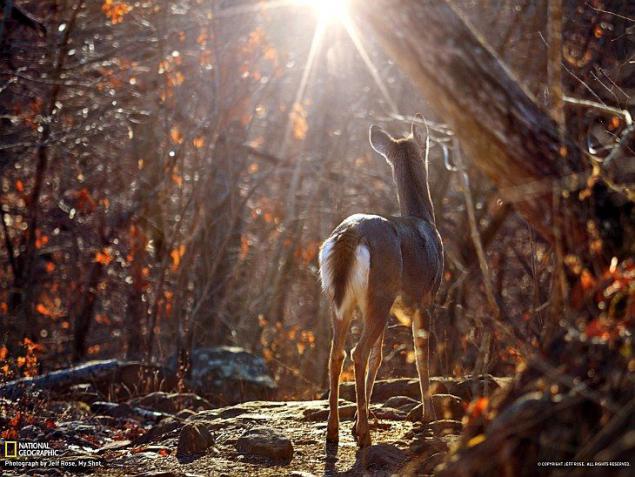
Comorian day gecko
These are gecko daily life, feed mainly on nectar of flowers and insects, their color changes depending on temperature and illumination. (Photo by Lauren Hogan):
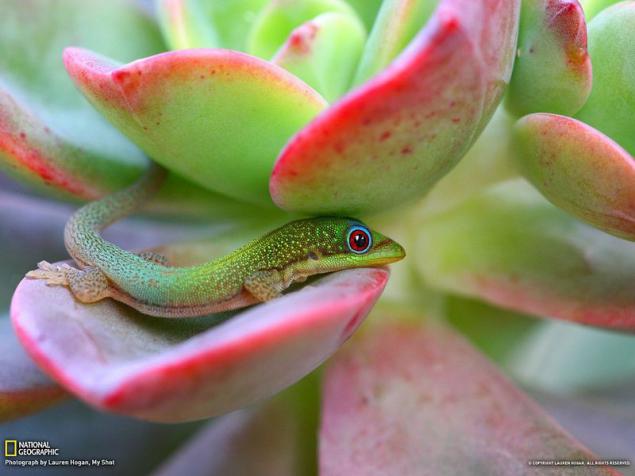
A flock of swifts over the Iguazu Falls
Almost a fantastic picture. Learn more about these waterfalls, see the article "Seven New Wonders of Nature." (Photo by Francesco Filippo Pellegrini):
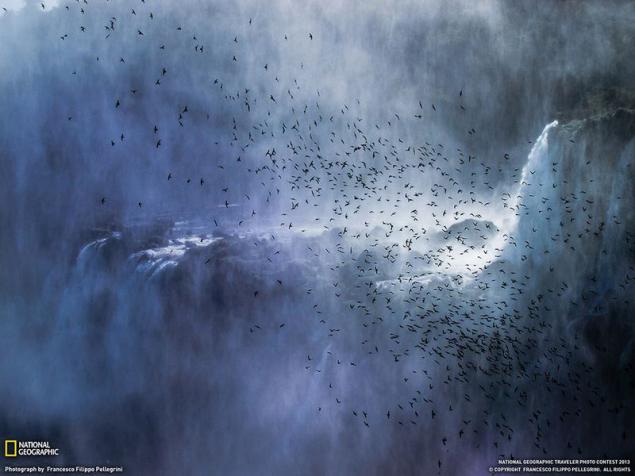
Orda Cave
It is the world's largest underwater gypsum cave located in the Perm region of Russia. Read more in the article "Travel Orda cave." (Photo by Viktor Lyagushkin):
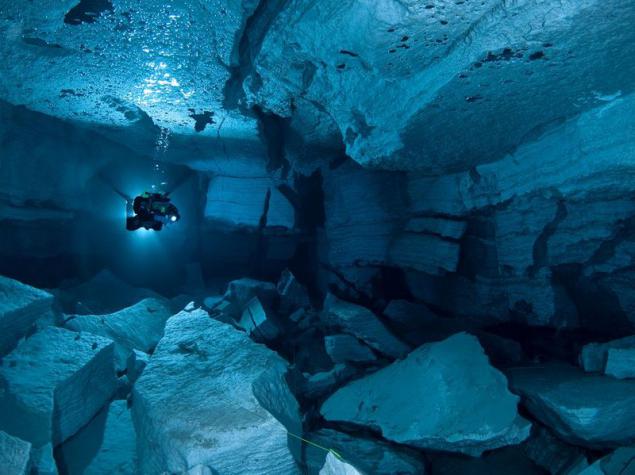
The waves and icebergs, Iceland
(Photo by Sophie Carr):
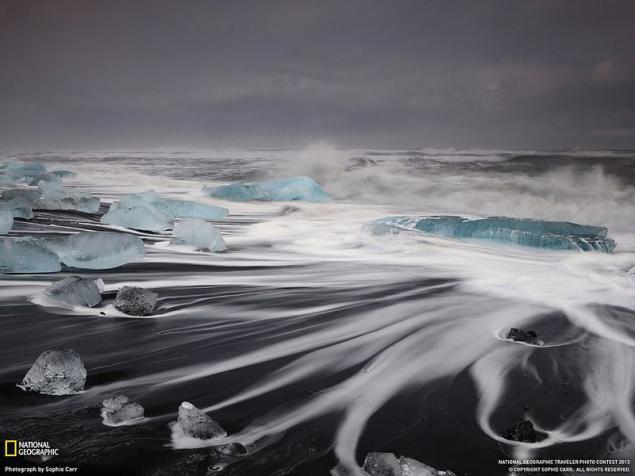
Eastern screech owl
Also read the article "The Art of camouflage in animals." (Photo by Graham McGeorge):
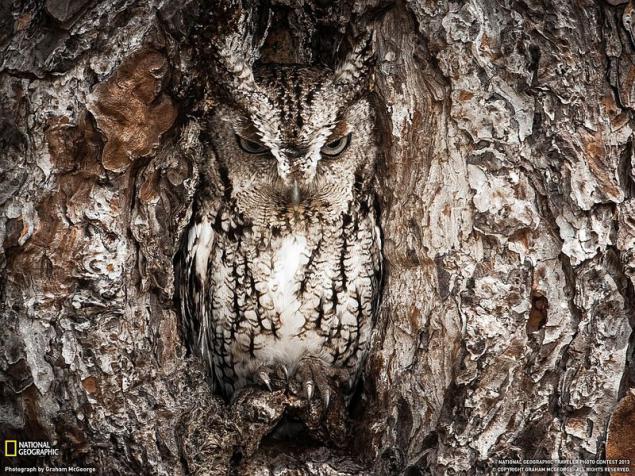
Bixby Creek Bridge, California
Bixby Creek Bridge - an engineering marvel. More than a million tourists and photographers from around the world stop here every year to enjoy the magnificent view. (Photo by Douglas Croft):
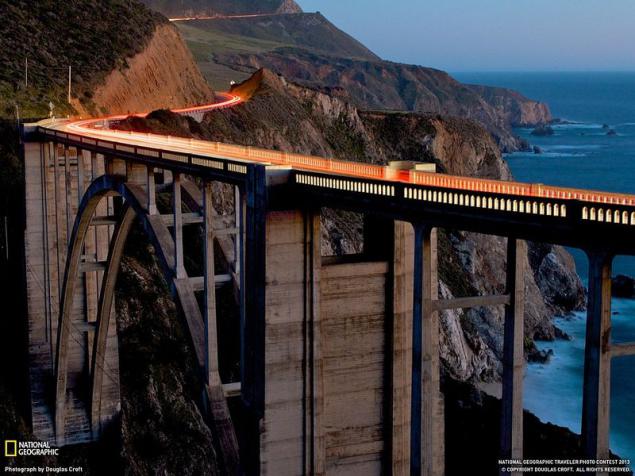
Lake five colors, China
Heaven and earth are reflected in the Lake five colors, intricately painted in mineral salts and water plants. The Chinese call this painting magic. "Nothing on earth can compare to Jiuzhaigou" - they say. (Photo by Michael Yamashita):
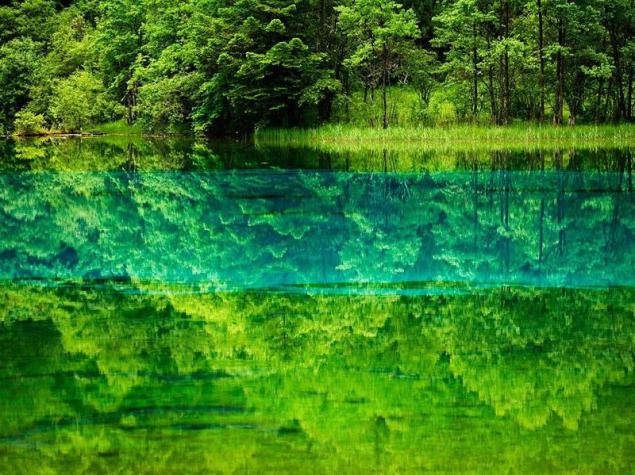
Moscow
View from the Big Moscow River bridge. (Photo by Dara Pilugina):
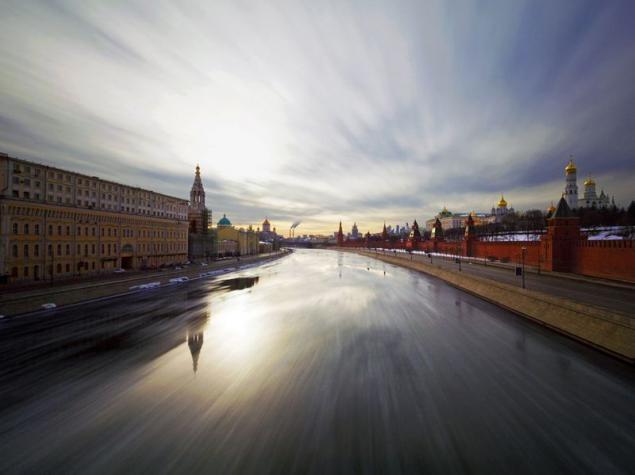
Fisherman in Indonesia
(Photo Dody Kusuma):
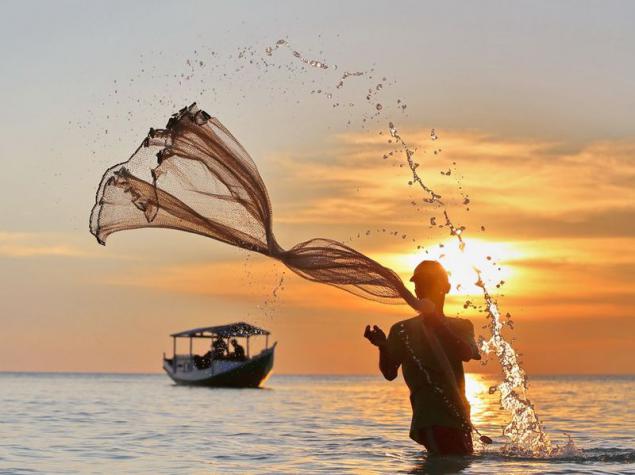
Fireworks and demons in Catalonia
(Photo by Carlos Rodriguez Pacheco):
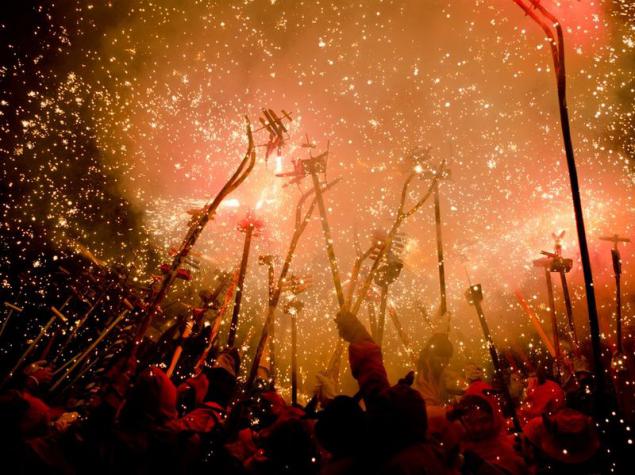
Wolverine, Kamchatka
Even through the thick layer of snow wolverine can smell prey. This predator eyesight is poor, but hearing and smell - excellent. (Photo by Sergey Gorshkov):
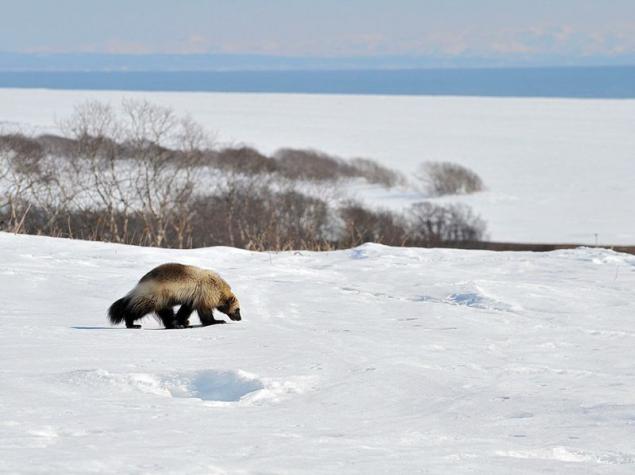
The tentacles of worm-sabellida, Hawaii
With a large increase in the photo is visible to the network of thin hair-worm sabellida. Hairs aqueous slurry is separated into several streams that bring particles - including minerals and detritus for protective "house" - directly into the animal's mouth. Bright colors warn predators that the worm can be poisonous. (Photo by Darlene A. Murawski):
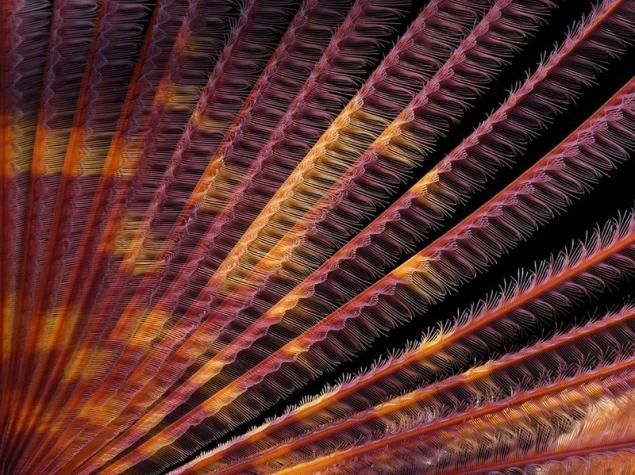
Night sky, Patagonia
(Photo by Max Seigal):
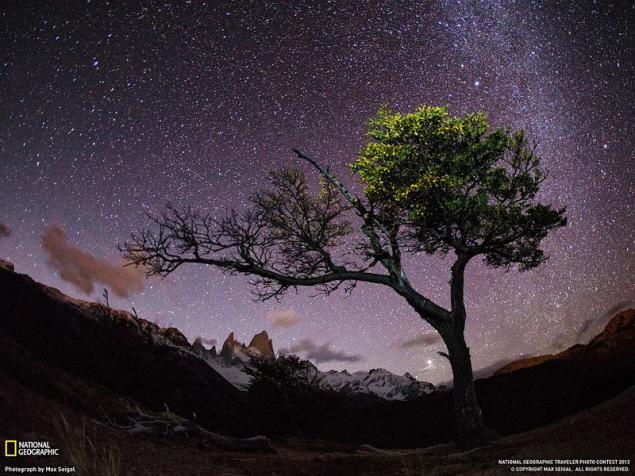
Bamboo Forest, Japan
(Photo Teruo Araya):
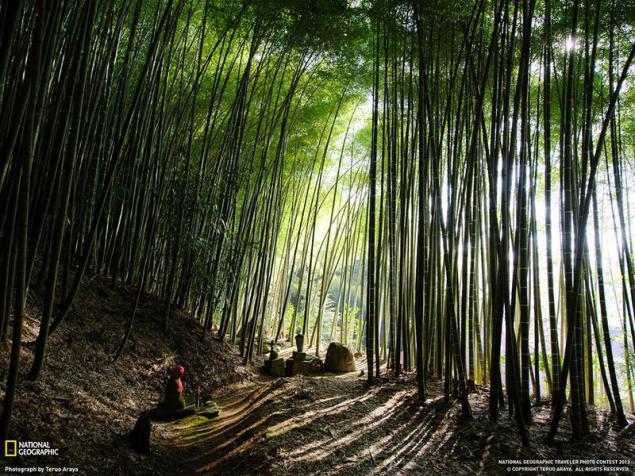
Brown seagull, India
Last year, during a trip to the reservoir on the river Bhima, where flamingoes spend the winter, the photographer noticed a brown seagull gliding over the water. He pressed a button camera just as happy when vytsepit gull from water fish. (Photo Chandrabala Singh):
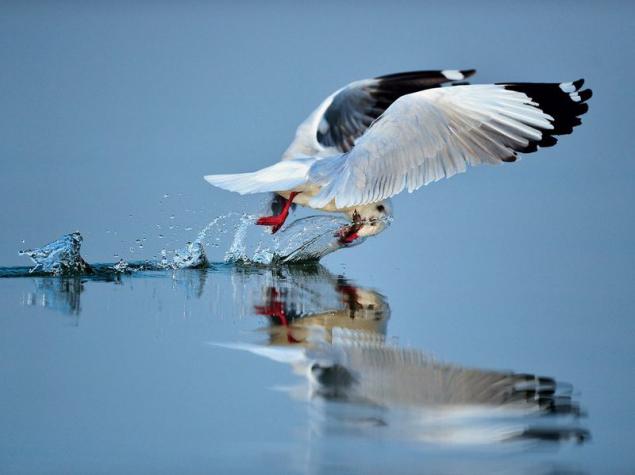
Synanceia verrucosa
On the Pacific reef it is very difficult to see synanceia verrucosa - the fish, the meeting at which all forces should be avoided. If the poison spines on its back and did not kill you, unbearable pain is guaranteed. (Photo by Mattias Klum):
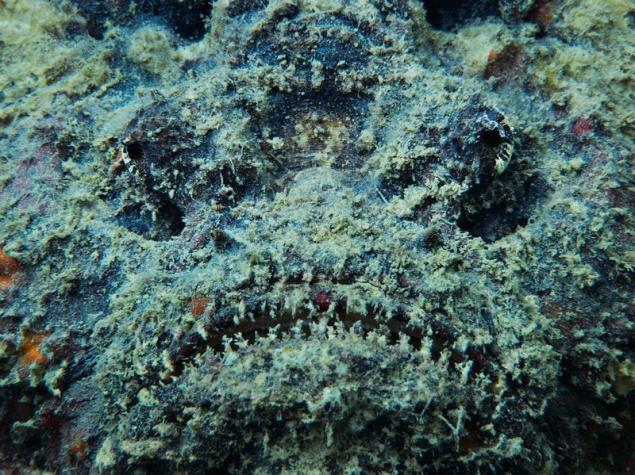
Hveravetlir, Iceland
In Hveravetlire (meaning "hot springs on the plain") in the XVIII century in a cave hidden among the legendary Irish fugitive from the law-Fyalla Eyvindur and his wife. Some winters are warmed from sources and stealing sheep to summer pastures. (Photo Orshoya and Erlen Harberga):
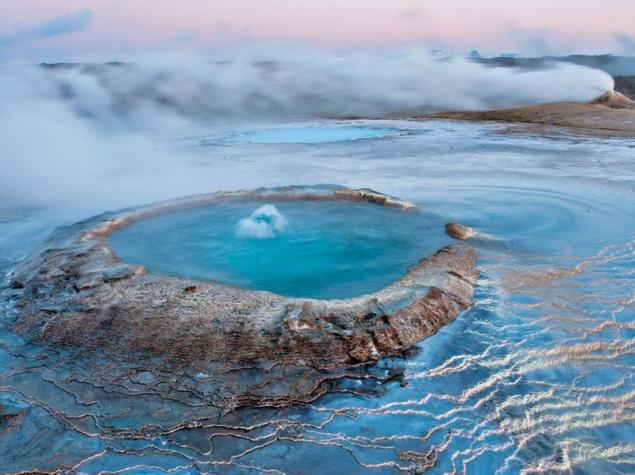
Svalbard, Norway
Ecosystem Svalbard includes the sky, the sea and the coast. Small razorbills nest on ledges of rocks and dive for crayfish copepods. Decomposed remains of birds and their droppings provide fertilizer for moss undergrowth in which ambush foxes. (Photo: Paul Nicklen):
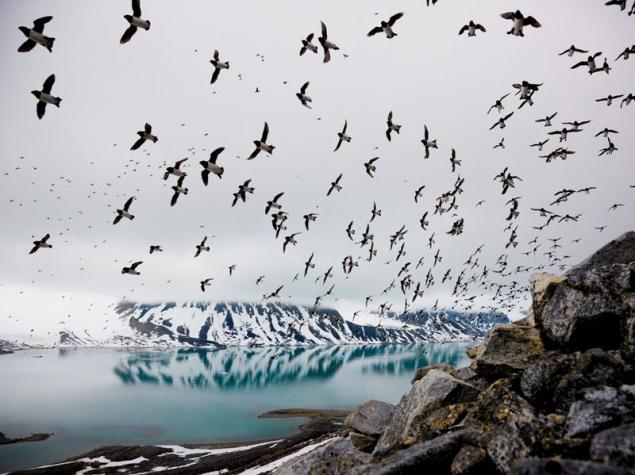
Parson Russell Terrier, USA
Parson Russell Terrier named Lulu splashed into the pool in the American Phoenix (Arizona). To capture the moment when she grabs a toy thrown into the water, the photographer took ten tries, the ability to work under water and fantastic skill. Also see the article "Amazing underwater dog." (Photo by Seth caste):
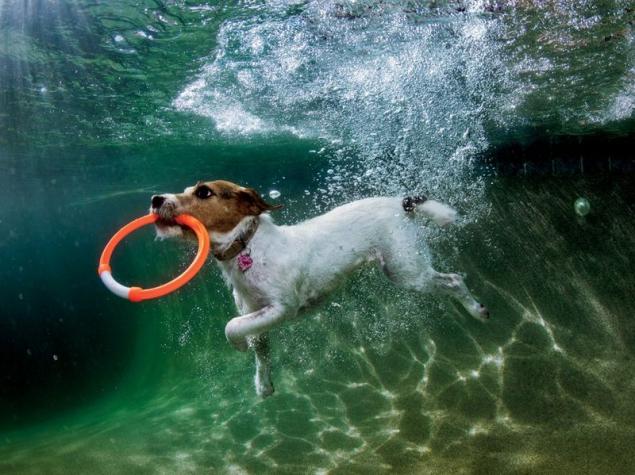
Arctic fox, Wrangel Island
Young foxes autumn begin to develop the territory and more rarely go back to the burrow, where they were born and spent the first three months of life. (Photo by Sergey Gorshkov):
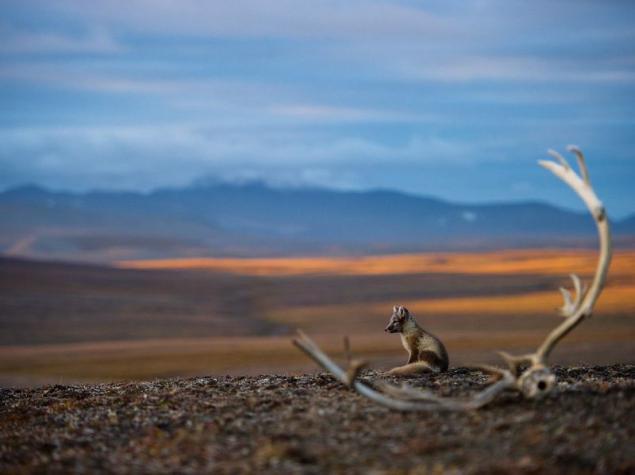
Source: loveopium.ru

Virginia deer, Arkansas
One of the most common types of cervids in North America. Interestingly, in the 1920s, the population of deer in Arkansas was only 200 goals. (Photo by Jeff Rose):

Comorian day gecko
These are gecko daily life, feed mainly on nectar of flowers and insects, their color changes depending on temperature and illumination. (Photo by Lauren Hogan):

A flock of swifts over the Iguazu Falls
Almost a fantastic picture. Learn more about these waterfalls, see the article "Seven New Wonders of Nature." (Photo by Francesco Filippo Pellegrini):

Orda Cave
It is the world's largest underwater gypsum cave located in the Perm region of Russia. Read more in the article "Travel Orda cave." (Photo by Viktor Lyagushkin):

The waves and icebergs, Iceland
(Photo by Sophie Carr):

Eastern screech owl
Also read the article "The Art of camouflage in animals." (Photo by Graham McGeorge):

Bixby Creek Bridge, California
Bixby Creek Bridge - an engineering marvel. More than a million tourists and photographers from around the world stop here every year to enjoy the magnificent view. (Photo by Douglas Croft):

Lake five colors, China
Heaven and earth are reflected in the Lake five colors, intricately painted in mineral salts and water plants. The Chinese call this painting magic. "Nothing on earth can compare to Jiuzhaigou" - they say. (Photo by Michael Yamashita):

Moscow
View from the Big Moscow River bridge. (Photo by Dara Pilugina):

Fisherman in Indonesia
(Photo Dody Kusuma):

Fireworks and demons in Catalonia
(Photo by Carlos Rodriguez Pacheco):

Wolverine, Kamchatka
Even through the thick layer of snow wolverine can smell prey. This predator eyesight is poor, but hearing and smell - excellent. (Photo by Sergey Gorshkov):

The tentacles of worm-sabellida, Hawaii
With a large increase in the photo is visible to the network of thin hair-worm sabellida. Hairs aqueous slurry is separated into several streams that bring particles - including minerals and detritus for protective "house" - directly into the animal's mouth. Bright colors warn predators that the worm can be poisonous. (Photo by Darlene A. Murawski):

Night sky, Patagonia
(Photo by Max Seigal):

Bamboo Forest, Japan
(Photo Teruo Araya):

Brown seagull, India
Last year, during a trip to the reservoir on the river Bhima, where flamingoes spend the winter, the photographer noticed a brown seagull gliding over the water. He pressed a button camera just as happy when vytsepit gull from water fish. (Photo Chandrabala Singh):

Synanceia verrucosa
On the Pacific reef it is very difficult to see synanceia verrucosa - the fish, the meeting at which all forces should be avoided. If the poison spines on its back and did not kill you, unbearable pain is guaranteed. (Photo by Mattias Klum):

Hveravetlir, Iceland
In Hveravetlire (meaning "hot springs on the plain") in the XVIII century in a cave hidden among the legendary Irish fugitive from the law-Fyalla Eyvindur and his wife. Some winters are warmed from sources and stealing sheep to summer pastures. (Photo Orshoya and Erlen Harberga):

Svalbard, Norway
Ecosystem Svalbard includes the sky, the sea and the coast. Small razorbills nest on ledges of rocks and dive for crayfish copepods. Decomposed remains of birds and their droppings provide fertilizer for moss undergrowth in which ambush foxes. (Photo: Paul Nicklen):

Parson Russell Terrier, USA
Parson Russell Terrier named Lulu splashed into the pool in the American Phoenix (Arizona). To capture the moment when she grabs a toy thrown into the water, the photographer took ten tries, the ability to work under water and fantastic skill. Also see the article "Amazing underwater dog." (Photo by Seth caste):

Arctic fox, Wrangel Island
Young foxes autumn begin to develop the territory and more rarely go back to the burrow, where they were born and spent the first three months of life. (Photo by Sergey Gorshkov):

Source: loveopium.ru

